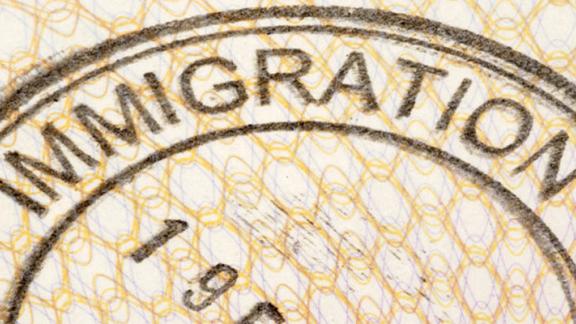Recruitment of overseas allied health professionals

Key updates:
- Update on OET Test availability and information about which organisations recognise OET.
Requirements for international applications
Allied health professionals (AHPs) who have trained and qualified overseas will need to register with the Health and Care Professions Council (HCPC) before they can practice under a protected title in the UK.
Applications for HCPC registration can now be completed online. In the application, candidates will need to demonstrate that they meet the standards of proficiency for their profession and then each application is assessed on a case-by-case basis. Assessment normally takes around 60 working days and a fee currently of £639.98 paid by the applicant.
HCPC new English language requirements and assessments
From 29 January 2025 the HCPC has implemented new English Language requirements. This includes:
- removing the ability for international applicants to self-declare English as their first language
- adding a qualifying countries list, meaning those who gained their primary qualification in a country on the list will be able to use this to evidence their proficiency
- all other international applicants will have to evidence their language ability via an approved test.
The HCPC has so far added Occupational English Test (OET) as a recognised English language test provider, in addition to the existing approved test providers, International English Language Testing System (IELTS) and Test of English as a Foreign Language (TOEFL). Further test providers have until March 2025 to show how their test would meet their requirements.
Applications submitted on or after 29 January 2025 will be subject to the new requirements. Applications that were started prior to that date will be subject to the previous system. These changes do not mean anything for those already on the register.
More information on the updates following the consultation is available on the HCPC website.
IELTS Test
Applicants must provide certification of their proficiency in English language in order to gain HCPC registration. They must have achieved level 7.0 in the International English Language Testing System (IELTS) with no element below 6.5, or certification comparable to this. Speech and language therapists need to have attained a level 8.0 in IELTS with no element below 7.5, or a comparable certification.
TOEFL Test
HCPC also accepts Test of English as for Foreign Language (TOEFL) Internet based Test (IBT) undertaken in a candidate’s home country. All professions must have achieved a minimum score of 100/120, except speech and language therapists who must achieve a minimum score of 118/120.
If applicants propose to rely upon a non-IELTS test score, they are strongly advised to ensure the test is comparable and meets HCPC standards of proficiency. Failure to do so may delay the processing of your application.
Eligible Professions for the OET Test
Below is a guide to the specific OET Test to take based on healthcare profession, aligning with HCPC recognition requirements:
Profession | OET Test |
| Chiropodists/Podiatrists | Podiatry |
| Dietitians | Dietary |
| Occupational therapists | Occupational therapy |
| Speech and Language Therapists | Speech and Language |
| Physiotherapists | Physiotherapy |
| Radiographers | Radiography |
If a profession is not on the list above, please consult the HCPC website to find out which English test you can take.
OET Test score requirements
The OET Test consists of four sub-tests, with scores reported on a scale ranging from 0 to 500 in ten-point increments (e.g., 350, 360, 370). To meet HCPC’s English language requirements, candidates must achieve the following minimum scores based on their profession.
Speech and Language Therapists must have no individual sub-test score below 400 and an overall minimum score of 1800.
All other professions must have no individual sub-test score below 300 and an overall minimum score 1400.
These benchmarks ensure that applicants possess the communication skills necessary to provide safe and effective care in UK healthcare settings.
OET Test availability
The OET Test is available on paper, on computer and at home. Below is a guide to which OET Test can be taken when registering with the applicant’s regulatory body.
| Registration | OET on Paper | OET on Computer | OET @ Home |
| NMC registration | ✓ | ✓ | ✓ |
| GMC registration | ✓ | ✓ | ✓ |
| GPhC registration (Pharmacists) | ✓ | ✓ | X |
| HCPC registration* | ✓ | ✓ | X |
*Dieticians, occupational therapists, physiotherapists, podiatrists, radiographers, and speech and language therapists.
More information about which organisations recognise OET can be found on the OET website.
HCPC standards and guidance
As part of their application to join the HCPC register, applicants will sign to say that will comply with HCPC’s standards of conduct, performance and ethics, standards of proficiency, and that they have a professional indemnity arrangement in place. The HCPC has compiled some of the questions and answers registrants commonly ask about professional indemnity.
Making a job offer and completing a Certificate of Sponsorship
Once registration with HCPC is obtained, HCPC will issue the candidate with a registration number. This registration number will be needed when employers apply for a Certificate of Sponsorship (CoS). Once a CoS is issued, the candidate can apply for the Health and Care Worker visa. Employers can email UKVINHSteam@homeoffice.gov.uk for further support related to the Health and Care Worker visa.
NHS Employers has helpful resources on the sponsorship licence system, eVisas, how to apply for a CoS and the process of obtaining a Health and Care Worker visa.
Considerations for employers
It is particularly important to adhere to a values-based recruitment process when recruiting international AHPs. These candidates will not have prior experience of working in the NHS and so will not be able to demonstrate experience of this during the recruitment process. Values-based recruitment will allow international applicants a fair opportunity to demonstrate their own range of skills and experience.
The Code of Practice for ethical international recruitment applies to all health and social care professions, including AHPs. Employing organisations and recruitment agencies should not actively recruit from any of the countries on the World Health Organisation (WHO) Support and Safeguard List, 2023 and adhere to its guiding principles and best practice benchmarks. If you are working with a recruitment agency, be sure they are on ethical recruiters list as adhering to the Code.
Return to practice
NHS England runs a Return to Practice programme to support AHPs who have been out of their profession for two or more years, and those who did not register with the HCPC within five years of qualification. The programme is also available for overseas qualified clinicians living in England who already hold HCPC registration.
National programmes
A nationally led Community Diagnostic Centre (CDC) international recruitment programme has been developed to supply a trained and skilled workforce to UK CDCs. The programme provides onboarding, clinical supervision and mentorship resourcing to support the retention of international staff. Candidates receive skills mapping and training in their home countries to identify any gaps in competencies and action learning sets before they arrive in the UK.
Once in the UK, candidates receive residential induction to support integration into the NHS and work with the Society and College of Radiographers to develop preceptorship training to support career progression.
Systems are encouraged to engage in the programme to ensure that they are able to facilitate joining the UK workforce, meet recruitment timescales and offer contracts with a minimum 2-year tenure to support retention.
Support is available from NHS England national and regional programme teams as well as the materials and information on the CDC FutureNHS page. For any queries about the CDC programme, please contact us: england.cdcprogramme@nhs.net.
Continuing Professional Development (CPD)
There is no requirement for AHPs to attend formal training for a specified length of time. However, continuing professional development is still important for this group of professionals and they will need to keep their skills up to date in order to practice safely and effectively. HCPC advises that employers are not responsible for AHPs’ CPD, however HCPC's CPD standards are a responsibility that registrants must meet. There is information for what employers need to know on the HCPC website. Evidence of CPD and its impact on practice is an important element of the bi-annual HCPC re-registration process.
Community of Practice
The AHP International Recruitment Community of Practice meets bi-monthly and offers an open forum to discuss ongoing recruitment of international AHPs. More information regarding the AHP Community of Practice can be found on NHS Futures.
Resources
Below are some useful resources that employers can use to support the international recruitment of AHPs.
- Supporting International Recruitment of AHP's
- Allied Health Professional: Quick guide to international recruitment.
- NHS England – Allied health professions.
- Health & Care Professions Council.
- Health Careers: We are allied health professionals.
- The 14 allied health professional roles.
- The HCPC has a case study written by a HCPC-registered dietitian who shares some top tips for applying via their international route.



